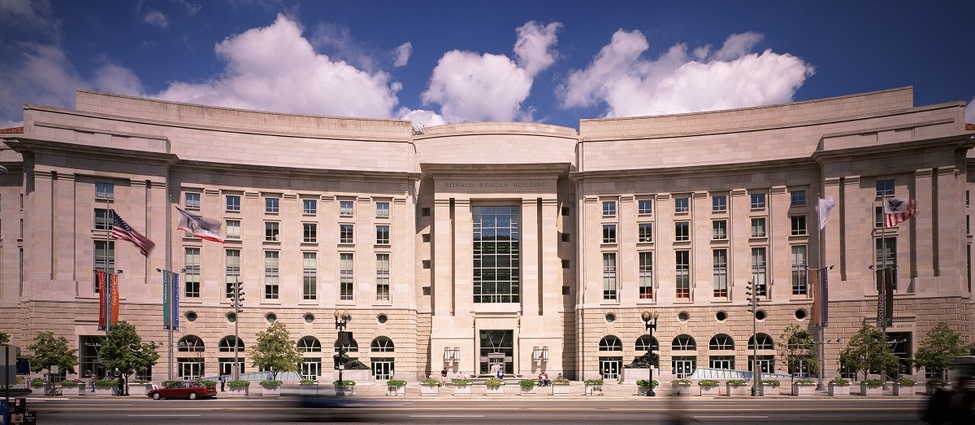

News

Virginia/DC District Export Council SME conference

On September 4th, business leaders joined the Virginia and Washington D.C. District Export Council at the Ronald Reagan Building and International Trade Center (RRB/ITC) for a one-day conference featuring global experts who shared tips and insights on how businesses can make Washington, DC work for their global objective.
Some of the keynote speakers at the conference included Aaron Miller, Vice Chairman of the Virginia/DC District Export Council, Andrew Gelfuso, Director of the World Trade Center Washington, DC, Ian Steff, performing the non-exclusive functions and duties of the Assistant Secretary for Global Markets and Director General of the U.S. & Foreign Commercial Service, and Bill Fanjoy, Director of U.S. Export Assistance Center. The panelists had an eventful afternoon discussing the current state of the world trade system and how to increase awareness and understanding on global trade for small businesses. According to Miller, the purpose of the conference was to “spark ideas in a way that allows you as an SME organization to approach your global business in the most informed way possible.” In addition, Gelfuso emphasized how unique DC is, with access to resources unlike any other city in the country.
“There are so many federal and private sector resources, yet often small-to-mid-sized businesses either don’t hear about them or don’t get involved,” Gelfuso said. “The DEC and many of you in this room today from business councils or chambers are committed to spreading the word about the resources that DC has to offer SME’s.”
Over the past decade, the marketplace has drastically evolved with technology in a positive, impactful way. Digital media and the tech industry have completely changed the global work environment by increasing productivity and promoting efficiency. Scott Blacklin, the Chairman of Virginia Washington, D.C. District Export Council, shared examples with the audience of his business success due to the growth and ease of telecommunication technology and how that has helped him maintain strong relationships with clients in Moscow, while working from his office stateside.
“There are so many federal and private sector resources, yet often small-to-mid-sized businesses either don’t hear about them or don’t get involved.”
Although technology and digital media have positively influenced international trade, many global experts believe tariffs are poised to be a major threat. Tom Ivy, President of the F.R. Drake Company, explained that 70 percent of the company’s products are exports and they often experience tariff-related issues due to the recent 25 percent tariff imposed on imports of steel and 10 percent tariff on imports of aluminum. Matthew Reisman, Director of International Trade Policy at Microsoft, adamantly believes that, “trade changes people’s lives for the better.” Reismann’s initial belief that tariffs would slowly become less of a trade barrier was challenged when the current administration imposed a 25 percent tariff on the $200 billion products coming into the U.S. from China.
The evening continued with a discussion between Tomas Baert, the Head of Trade Agricultural Section for the Delegation of the European Union to the United States, and Anna Gawel, the Managing Editor for the Washington Diplomat. Gawel questioned Baert about trade talks between the EU and the U.S. and the newly imposed tariffs.
Throughout the program, the majority of panelists touched on the current state of the trade environment a feeling of uncertainty was shared by those in the room, though many iterated that uncertainty may lead to unexpected opportunities. Bill Lane, the Executive Director at Trade for America, believes businesses can accomplish more in a time of uncertainty. “There is uncertainty out there and where there’s uncertainty, there’s a market opportunity,” Lane said. Brett Bruen, President of the Global Situation Room, urged the audience to go out and engage with others, even in a time of risk, with the parting message to “Thrive in the age of uncertainty.”